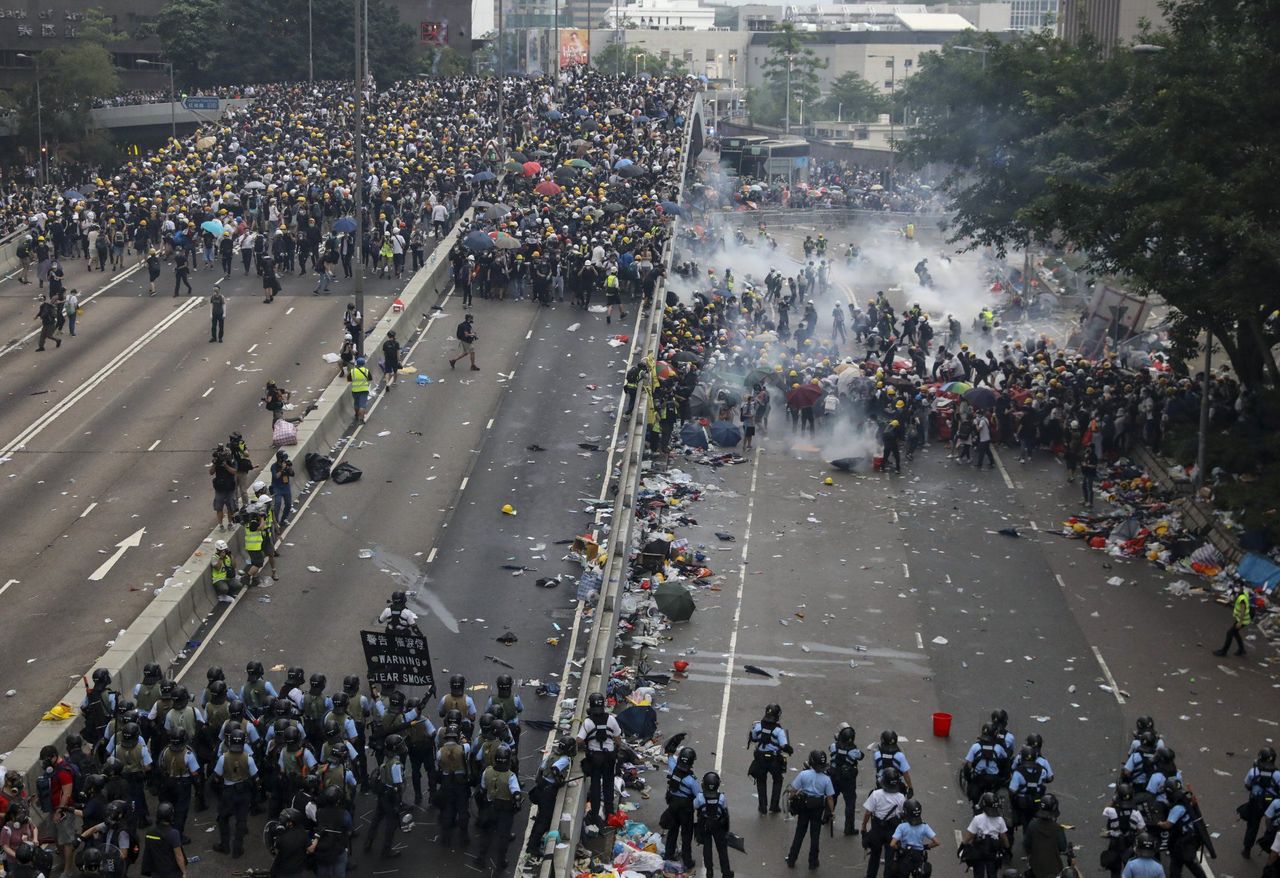But High Court says the case should be handled through civil action rather than judicial review.
The High Court has ruled part of a legal bid challenging a police decision to use tear gas for the first time during the 2019 anti-government movement in Hong Kong is “reasonably arguable” but the case should be handled through a civil action rather than a judicial review.
A legal challenge would require resolving substantial disputes of facts, which was impossible using the evidence presented in the submitted affidavit, Mr Justice Anderson Chow Ka-ming wrote in his judgment on Wednesday as he granted leave to the applicants to proceed with the civil action.
The application filed on September 11, 2019, by Civil Human Rights Front convenor Jimmy Sham Tsz-kit and protester Yeung Kwok-ming, centred on a protest the group organised on June 12, 2019, near the Legislative Council in Admiralty as lawmakers were slated about to carry out a second reading of a now-withdrawn extradition bill.
The day was the turning point for social unrest that rocked the city for months afterwards as the list of grievances expanded to issues including police use of force and labelling protests as riots.
Police had approved the demonstration that day, but events escalated for the first time into a violent confrontation between protesters and officers, who fired 240 rounds of tear gas.
At issue was whether it was lawful and constitutional for officers to use tear gas grenades, without reasonable prior notification, to disperse a meeting allowed by police.
 Police fire tear gas at protesters in Admiralty on June 12, 2019.
Police fire tear gas at protesters in Admiralty on June 12, 2019.
Chow said that while officers were entitled to use force in carrying out their duties, the force they actually used should be no more than what was reasonably necessary and prior warning should be given if the circumstances permitted.
“Where tear gas is to be deployed to disperse a crowd, police officers should give prior warning of its intended deployment, allow the crowd sufficient time to disperse and provide a reasonable route for safe and effective dispersal without being subjected to tear gas,” he said.
Chow said the applicants’ case that police breached relevant laws, including the right to be free from torture or cruel, inhuman or degrading treatment or punishment under the Hong Kong Bill of Rights Ordinance, was reasonably arguable.
“Whether such case can actually be made out would, however, depend on a proper resolution of the aforesaid factual disputes,” he wrote, including whether the police had given proper or sufficient notice of their intention to use tear gas, and had given enough time for crowds to leave before using the irritant.
Chow suggested the issue should better be resolved through a civil action instead of a judicial review.
“As recently mentioned by this court, an application for judicial review, where evidence is normally given by means of affidavit without cross-examination, is generally an inappropriate means to resolve substantial disputes of facts,” he said.
Chow made it clear he did not find the bid “an abuse of process” on the grounds the applicants could have taken the case to the Complaints Against Police Office or the watchdog Independent Police Complaints Council. “Quite apart from any issues of ‘lack of independence’ in respect of the former and limitation of ‘investigative powers’ in respect of the latter, it is clear that both bodies do not have the powers to grant the remedies sought by the applicants in the present application,” he explained.
He rejected other grounds for a judicial review raised by the applicants, including one that the provisions under the Public Order Ordinance regarding police powers over meetings, processions and gatherings were unconstitutional in that they placed unreasonable restrictions on the right to lawful assembly and gave the police sweeping and excessive powers to ban, stop and disperse a notified assembly.
Sham was among 47 opposition activists charged last month over their roles in what prosecutors called a subversive plot to paralyse the government and topple the city’s leader after securing a controlling majority in the Legislative Council through an unofficial primary last July. He was remanded in custody.















